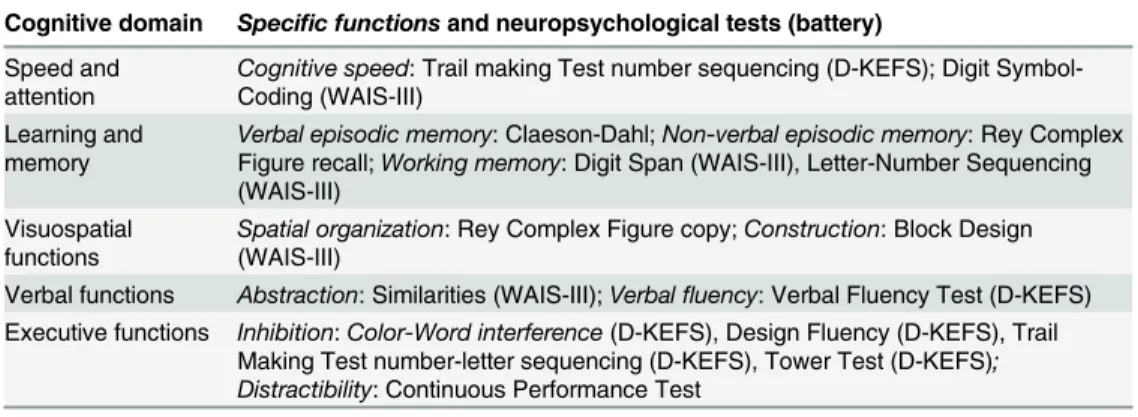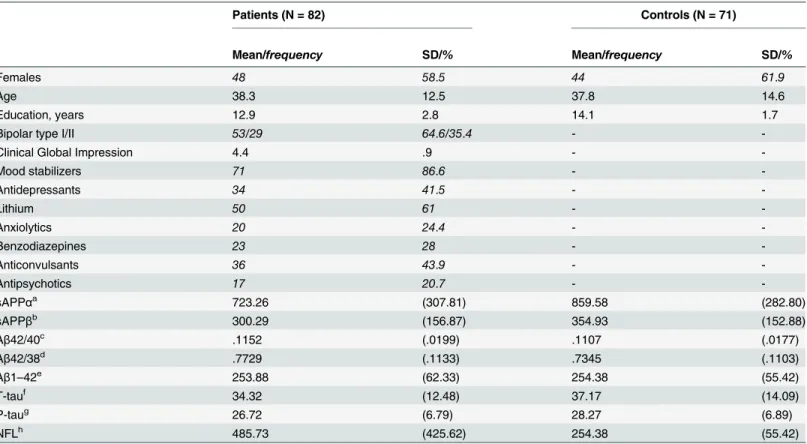Cognitive performance and cerebrospinal fluid biomarkers of neurodegeneration: a study of patients with bipolar disorder and healthy controls.
Texto
Imagem




Documentos relacionados
Assim pode-se perceber que tanto o aluno e tutor devem se preparar para o uso do sistema a aplicação deste conhecimento pode gerar novos horizontes e trazer resultado
Results: The cerebellum volume was reduced in patients with cognitive impairment without dementia and with dementia, in patients with PTSD, and in patients with bipolar
Cognitive impairment in late-life bipolar disorder is not associated with Alzheimer’s disease pathological signature in the cerebrospinal fluid.. Wirdefeldt K, Adami H-O, Cole
The goal of the present study was to determine concentrations of E- selectin in both cerebrospinal fluid (CSF) and serum of patients with aneurysmal subarachnoid hemorrhage (SAH) and
To the authors’ knowledge, this is the first study to compare cognitive performance and psychosocial func- tioning between patients with BD, unaffected siblings, and healthy
This cross- sectional study examines differences among healthy elderly controls and patients with vascular mild cognitive impairment (VaMCI) and vascular dementia (VaD) in
Association of cerebrospinal fluid beta-amyloid 1-42, T-tau, P-tau181, and alpha-synuclein levels with clinical features of drug-naive patients with early Parkinson disease.
Introduction: The objective of this study was to compare patients with bipolar disorder (BD), their first-degree relatives and a group of healthy controls in terms

